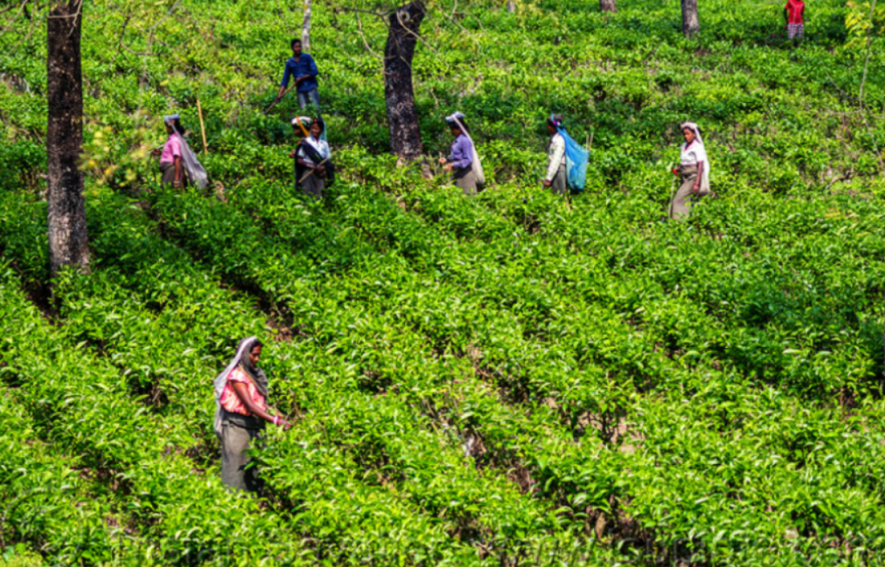West Bengal: Tea Garden Workers Against Land Missue in Hills and Terai Region

Kolkata: Tea garden workers are protesting against land misuse in the hills and the Terai region.
As per the workers, a large land extract under the District Empowerment Fund (DE Fund) will allegedly be transferred to industrialists to set up hotels and business units.
Tapas Sarkar, former sabhadipati of OF Siliguri Mahakuma Parishad, told NewsClick that the DE fund exists only in the Darjeeling district and Shimla.
"It is kept for the development of the region under the custody of the district magistrate; it amounts to several thousands of acres of land."
Even after opposition from the Tea Workers' Union, the state government started a land survey to find excess land in the hills; this happened after five decibels of land was given to the tea workers. The government has formed a high-powered committee and roped in the Gorkha Territorial Administration (GTA) to carry out the survey.
It can be recalled that the government recently informed the district magistrates of six districts of North Bengal (Darjeeling, Kalimpong, Jalpaiguri, Alipurduar, Koch Bihar and North Dinajpur) for land surveys to find excess land. This was followed by heavy discontent from people in the hills, leading to the government cancelling its order.
After withdrawing its order, the government met with the members of all major tea trade unions.
Saman Pathan, leader of the Chia Kaman Mazdoor Union affiliated with CITU (Centre of Indian Trade Unions), told NewsClick that they are not aversed to the land survey, but the government must start with withdrawing its decision to give only five decibels of land to tea workers.
"The same outlook should prevail for all tea workers of the state."
Last Saturday, November 11, the meeting between the top officers of the Darjeeling district administration, GTA officials, and leaders of tea trade unions (Chia Kaman Mazdoor Union did not join the meeting) led to the formation of three committees for land survey in the district, the block, and tea gardens.
The meeting led to controversy as land and industry are not on the list of powers that the GTA enjoys.
As per the leaders of the Tea Workers' Joint Forum, if the government wants to do a land survey in around 250 tea gardens where nearly 4 lakh tea workers are employed, it is welcome to do so; however, it is not welcomed if the excess land is handed out to the industrialists.
The tea plantations in the region span 97,280 hectares (240,400 acres) and produce 226 million kg of tea, accounting for approximately a quarter of India's total tea production. The Dooars region houses 154 gardens out of the 283 tea gardens in North Bengal, employing 3.5 lakh workers.
The cultivation of tea in the Dooars was primarily introduced and promoted by the British, but Indian entrepreneurs made significant contributions. Goodricke owns and operates 12 tea gardens in the Dooars, while the Duncan Company operates approximately 10 tea gardens.
In the Darjeeling district, where there is potential for 11 million kg of tea production, the current production stands at 6.5 million kg due to the departure of most male workers to work as migrants in other states. Women now make up over 80% of the tea workforce.
"To benefit all the tea workers, the government must propose a constructive land policy," Pathak told NewsClick.
Get the latest reports & analysis with people's perspective on Protests, movements & deep analytical videos, discussions of the current affairs in your Telegram app. Subscribe to NewsClick's Telegram channel & get Real-Time updates on stories, as they get published on our website.
























